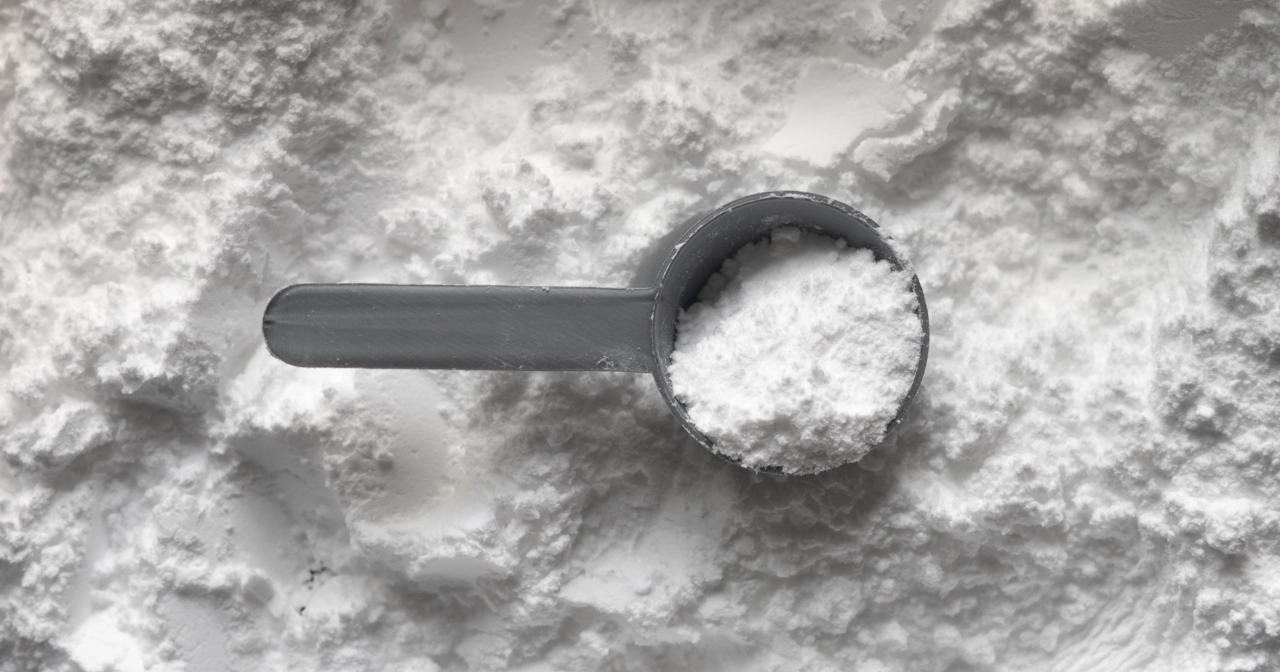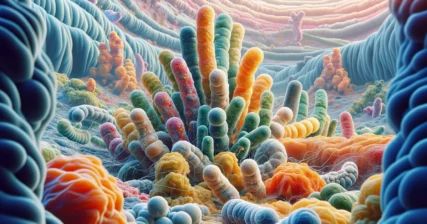It’s been a while since I first wrote about the health benefits of collagen. Since then, more and more research has shown us how valuable collagen protein powders can be as part of a healthy, high-protein diet.
Both marine and bovine collagens offer numerous health benefits, but there are some differences among them.
In this blog post, I’ll focus on marine collagen peptides.
Supplementing with marine collagen peptides:
- Improves skin health, hydration, and elasticity
- Supports bone regeneration
- Enhances joint and connective tissue function
- Reduces physical signs of aging
- Supports insulin-like growth factor-1 (IGF-1) levels, a surrogate marker for growth hormone production
I’ll try to address the most common questions surrounding marine collagen peptides here. If I neglect to answer one of your questions, please ask them in my VIGOR Training Facebook group.
What are marine collagen peptides?
Marine collagen peptides come from what was once considered fish production waste products: the head, skin, bones, and scales.
It’s similar to the story with whey protein. Cheesemakers discarded it during production, thinking it was useless. Later, scientists discovered its powerful muscle-building, immune-supporting benefits.
The head, skin, bones, and scales make up about 75% of the weight of fish, so most of the fish was tossed aside in the past. Fortunately, someone wondered what this fish waste contained. They extracted the collagen and today, we know it offers a number of anti-aging health benefits.
By treating the fish parts with acetic acid or pepsin and other compounds, we end up with purified proteins called collagen peptides.
Collagen peptides are tiny chains of amino acids which can pass from the gut into circulation, moving to various structures such as your skin, bones, or connective tissues. They can also trigger cells to produce other compounds that repair tissues.
Marine fish-derived peptides exhibit various biological activities such as antioxidant, antimicrobial, and angiotensin-I-converting inhibitory activity, as well as cancer metastasis inhibition, and immunostimulant activity.
Venkatesan, et al.
Collagen can also be extracted from beef or pork, but some cultures and religions refrain from beef consumption. There’s also a greater disease risk from conventionally raised beef or pork.
Some believe fish are a more sustainable collagen source. Also, we reduce environmental waste by using more fish than just the filets.
An enormous amount of research supports marine collagen peptides’ health benefits. The image below shows the number of studies by year, published in PubMed under the search term “marine collagen.” At the time of this writing, the search resulted in 1310 papers.

Marine collagen consists mainly of type I collagen, essential for bone, skin, and tendons. It is not used for cartilage, which is made up of type II collagen.
Skin Health and Aging
The changes you see in your skin as you age take place in the deep dermal layer. While topical products help mask the changes, they don’t fix them. Instead, you need to rebuild or at least slow the breakdown of your skin structure.
This is where collagen comes in.
Collagen and elastin make up most of the structure that keeps your skin firm and elastic. As you age, you produce less collagen, leading to sagging skin, thinning skin, and wrinkles. Increasing the collagen content of your skin may help to thicken it, making it more elastic and helping to reduce wrinkles.
Collagen loss in the body starts at 18–29 years of age, after 40 years the human body can lose around 1% per year, and at around 80 years collagen production in the body can decrease 75% overall in comparison to that of young adults.
León-López A, et al.
Research shows that supplementing with collagen directly increases available collagen and helps stimulate your body’s collagen production.
- In an 8-week study, participants took collagen peptides and ornithine. They experienced improved skin elasticity, reduced transepidermal water loss, and increased insulin-like growth factor-1 (IGF-1) levels.
- In another 8-week study, participants took collagen peptides combined with antioxidants (CoQ10, grape seed extract, luteolin, and selenium). They experienced increased skin collagen deposition and elasticity.
- Other studies show collagen peptides protect against free radicals, which may slow the aging of the tissues they act on
Evans et al. conducted a randomized and triple-blinded clinical trial on 45–60-year-old women to demonstrate the impact of collagen from a freshwater fish on wrinkled skin and elasticity. After three months of taking the collagen supplement, there was a significant reduction (35%) in wrinkles of participants compared to baseline. It was also observed that cheek skin elasticity significantly improved at 6 weeks post-treatment. Furthermore, compared to the placebo group, it was noted that in addition to elasticity and wrinkle improvements, there was a 14% improvement in hydration, 22% improvement in radiance, and a 25% improvement in skin firmness.
Geahchan S, et al.
Other Benefits of Marine Collagen
Beyond better-looking skin, marine collagen peptides:
- Enhance bone regeneration and reformation
- Support gut health
- Improve connective tissue health and function
- Increase insulin-like growth factor-1 (IGF-1), a marker for growth hormone levels
That last point is often overlooked when it comes to the benefits of fish collagen. Growth hormone levels fall as we age, making it more difficult to maintain muscle, recover from injuries, and burn body fat. We can look, feel, and function better by maintaining higher growth hormone levels.
I was pleasantly surprised to read that researchers found supplementing with marine collagen peptides supported higher IGF-1 levels.
The ability of marine collagen to promote skin re-epithelization, vascularization, fibroblast migration, and overall faster wound healing rates has been demonstrated. Furthermore, the antiaging effects of marine collagen related to greater skin elasticity and wrinkle reduction are highly promising for the cosmetic industry. Furthermore, the significant impact on osteoporosis prevention and treatment by increasing bone density and mineral deposition is also evident.
Geahchan S, et al.
Common Questions About Marine Collagen Peptides
Over the past 20+ years, I’ve heard and read a lot of exaggerating the truth, bald-faced lies, and total ignorance when it comes to exercise and nutrition.
It’s been a major motivator to continue writing, whether it’s related to the misinformation surrounding ketogenic diets, fasting, meal frequency, the overemphasis of cardio over resistance training, or the exaggerated claims and lies versus the truth when it come to supplements or essential oils.
In this question and answer section, some questions come from reasonable curiosity. Others are in response to some of the nonsense I’ve come across.
Does heat affect collagen?
High heat can denature collagen.
Does that mean you should avoid adding it to coffee or another hot beverage? Probably not. But you might want to avoid cooking or baking with it.
The denaturation temperatures of FSC (fish skin collagen) and BAT (bovine Achilles tendon) collagen were determined as 420K and 493K, respectively.
Gauza-Wlodarczyk, et al.
This means the marine collagen breaks down at about 296° F, while bovine collagen may handle temperatures as high as 427° F.
That said, coffee is brewed between 195-205° F, so go ahead and use it in your coffee. If you choose to bake with collagen, you’re better off using bovine collagen.
Do other compounds or botanicals enhance the benefits of marine collagen peptides for the skin?
Numerous other compounds have been studied for supporting skin health and slowing or reversing the effects of aging. Many of them have been studied in combination with collagen peptides.
Some of the most beneficial include:
- Quercetin: Reduces redness, itching, and inflammation from damaged skin while improving the skin’s barrier function and hydration
- Resveratrol: Protects the skin from UV damage, may reduce pigmentation from sun exposure and stimulates type I and type II collagen production
- Luteolin: Protects the skin from oxidation and may reduce skin inflammation
- Omega-3 fatty acids (fish oil): Increase skin hydration, making it appear fuller and youthful
- Vitamin C (ascorbic acid): Acts as an antioxidant as well as a co-factor in collagen biosynthesis
- Hyaluronic acid: May increase skin stores of hyaluronic acid, which then bind to water, making skin more supple
- Superoxide dismutase, an enzyme that helps squelch free radicals, known to accelerate the aging process
- Peach ceramides: lipid molecules found naturally in the skin that decrease with age, though supplementing with them has been shown to increase ceramides in the skin, improving hydration and protecting the skin from UV rays, pathogens, and pollutants
How does the bioavailability compare to bovine or chicken collagen?
Often, the research looks promising when a cell in a petri dish gets treated with a new chemical or botanical. Then, after in vivo research is completed, researchers find that the compound doesn’t get absorbed in the digestive tract or that the digestive system destroys the compound.
That isn’t the case with marine collagen. Research shows about 90% is absorbed within the first 12 hours after consumption. It’s highly bioavailable.
In addition, I found that many sites reference a statement that marine collagen is absorbed 1.5 times better than bovine collagen, and that it dissolves better in liquids.
I tried to find a scientific reference for the higher absorption rate, but could not. As a result, I cannot confirm or deny the statement, even though it was made on the internet, where everything you read is true (insert sarcasm). If I discover a scientific paper proving the higher bioavailability, I’ll update this post.
More recently, some types of liquid collagen have become popular and have been marketed as being much better absorbed. As of yet, there’s no compelling evidence to show a superior absorption rate.
Marine collagen peptides are extremely small chains of amino acids which pass from the digestive tract into the circulation easily.
Does the fish source matter?
Nutrition purists might grumble about what type of fish the marine collagen comes from or where it came from. This shows a lack of understanding about how refined a finished supplement is.
When it comes to collagen, the finished product–the collagen peptides in the bottle–is collagen peptides. Provided you buy from a highly reputable company that completes third-party testing on raw materials, collagen contains no contaminants, no matter the source.
I bring that up because collagen peptides from tilapia, cod, or salmon will provide equal benefits.
You’re not eating the filet. In that case, the type of fish and where it came from matter.
You’re taking nutraceutical, which has gone through numerous processes to refine it. Provided the fish comes from a sustainable source, the type of fish and where it came from are irrelevant.
Does marine collagen come from the eyes, scales, and “other leftover parts” of the fish?
Yes, it sure does. I said that at the beginning when I first started this article.
Does that mean you’re eating eyes and scales when you use marine collagen? No. The peptides are derived from there but the manufacturing process leaves you with purified collagen peptides. It’s just the same as the fact that you’re not consuming a cow hide when you use bovine collagen.
Is chicken bone broth the “original” collagen?
Amusingly enough, a social media “influencer” recently stated (as part of her pitch to sell her company’s “patented” collagen, “This is the best stuff we’ve found. It’s from chicken sternal cartilage – the closest to our naturally occurring human collagen. And closest to what generations of humans have made as bone broth (the original liquid collagen). Your grandma’s liquid collagen was chicken. Not plankton minnows.”
She probably hasn’t considered that history goes way back before grandma, and coastal cultures have made fish broth all along, boiling the whole fish to get the nutrition out of it.
There’s been a renewed interest in eating “nose to tail,” as we get a lot of nutrition from eating more than just the big fleshy parts. That’s the case for land animals and for fish.
Is pure collagen a protein or not?
Of course it is. Using the words of the influencer I referenced above, she stated:
Pure collagen is not a dietary protein. If you see collagen listed in a collagen supplement, it comes from the random ground-up animal parts. It’s ‘the hotdog of collagens.’”
If you understand basic nutrition, you’re as perplexed as me by such a statement.
Amino acids are the building blocks of proteins, yet even amino acids themselves can be counted as protein. For example, 8 grams of BCAAs would count as 8 grams of protein.
Marine collagen peptides are made up of chains of 20-30 amino acids. If you take a scoop of them that includes 5 grams of peptides, you are getting 5 grams of protein.
There aren’t accidental pieces of other stuff in the powder that make up the other protein.
Does marine collagen have high levels of heavy metals?
Heavy metals are one of the first things reputable supplement companies test for in raw materials. So, if you buy a product from a high-quality brand, it’s extremely unlikely that heavy metals will be an issue.
In addition, small fish, which are typically used for marine collagen, contain lower concentrations of heavy metals. That’s the same reason small fish are used for producing fish oil.
What’s the best daily dose of marine collagen peptides?
Researchers have shown benefits in people with doses between two and ten grams daily. I’d go right in the middle with five grams per day.
Since most of my readers know how much I advocate for a high-protein diet, you should know that your fish collagen does count towards your daily protein intake. That said, there’s a point of diminishing returns.
I wouldn’t take more than 10 grams per day, especially if you’re taking more collagen in place of other protein sources like whey protein, meat, eggs, or cottage cheese. It’s not that it would be harmful; you just wouldn’t get more benefit from consuming more.
While marine collagen works wonders on your skin, it won’t help you build muscle the same way essential amino acid-rich proteins will.

Feel Better Fast. Guaranteed.
Energy+, EDGE, and MentaBiotics make up the Happy Juice supplement stack, with ingredients clinically proven to:
- decrease anxiousness scores by 55%
- decrease irritability scores by 60%
- decrease fatigue by 64%
- decrease anger 54%
- decrease tension by 45%
- decrease confusion by 43%
- decrease overall distress by 49%
- increase good bacteria by 70%
- decrease negative mood by 105%
- increase positive mood by 211%
References
De Luca, Chiara, et al. “Skin Antiageing and Systemic Redox Effects of Supplementation with Marine Collagen Peptides and Plant-Derived Antioxidants: A Single-Blind Case-Control Clinical Study.” Oxidative Medicine and Cellular Longevity, vol. 2016, 2016, p. 4389410. PubMed Central, https://doi.org/10.1155/2016/4389410.
Gauza-Włodarczyk, Marlena, et al. “Comparison of Thermal Properties of Fish Collagen and Bovine Collagen in the Temperature Range 298-670K.” Materials Science & Engineering. C, Materials for Biological Applications, vol. 80, Nov. 2017, pp. 468–71. PubMed, https://doi.org/10.1016/j.msec.2017.06.012.
Geahchan, Sarah, et al. “Marine Collagen: A Promising Biomaterial for Wound Healing, Skin Anti-Aging, and Bone Regeneration.” Marine Drugs, vol. 20, no. 1, Jan. 2022, p. 61. PubMed Central, https://doi.org/10.3390/md20010061.
Gendrisch, Fabian, et al. “Luteolin as a Modulator of Skin Aging and Inflammation.” BioFactors (Oxford, England), vol. 47, no. 2, Mar. 2021, pp. 170–80. PubMed, https://doi.org/10.1002/biof.1699.
Ito, Naoki, et al. “Effects of Composite Supplement Containing Collagen Peptide and Ornithine on Skin Conditions and Plasma IGF-1 Levels—A Randomized, Double-Blind, Placebo-Controlled Trial.” Marine Drugs, vol. 16, no. 12, Dec. 2018, p. 482. PubMed Central, https://doi.org/10.3390/md16120482.
León-López, Arely, et al. “Hydrolyzed Collagen—Sources and Applications.” Molecules, vol. 24, no. 22, Nov. 2019, p. 4031. PubMed Central, https://doi.org/10.3390/molecules24224031.
Maramaldi, Giada, et al. “Soothing and Anti-Itch Effect of Quercetin Phytosome in Human Subjects: A Single-Blind Study.” Clinical, Cosmetic and Investigational Dermatology, vol. 9, Feb. 2016, pp. 55–62. PubMed Central, https://doi.org/10.2147/CCID.S98890.
Ratz-Łyko, Anna, and Jacek Arct. “Resveratrol as an Active Ingredient for Cosmetic and Dermatological Applications: A Review.” Journal of Cosmetic and Laser Therapy: Official Publication of the European Society for Laser Dermatology, vol. 21, no. 2, 2019, pp. 84–90. PubMed, https://doi.org/10.1080/14764172.2018.1469767.
Venkatesan, Jayachandran, et al. “Marine Fish Proteins and Peptides for Cosmeceuticals: A Review.” Marine Drugs, vol. 15, no. 5, May 2017, p. 143. PubMed Central, https://doi.org/10.3390/md15050143.



